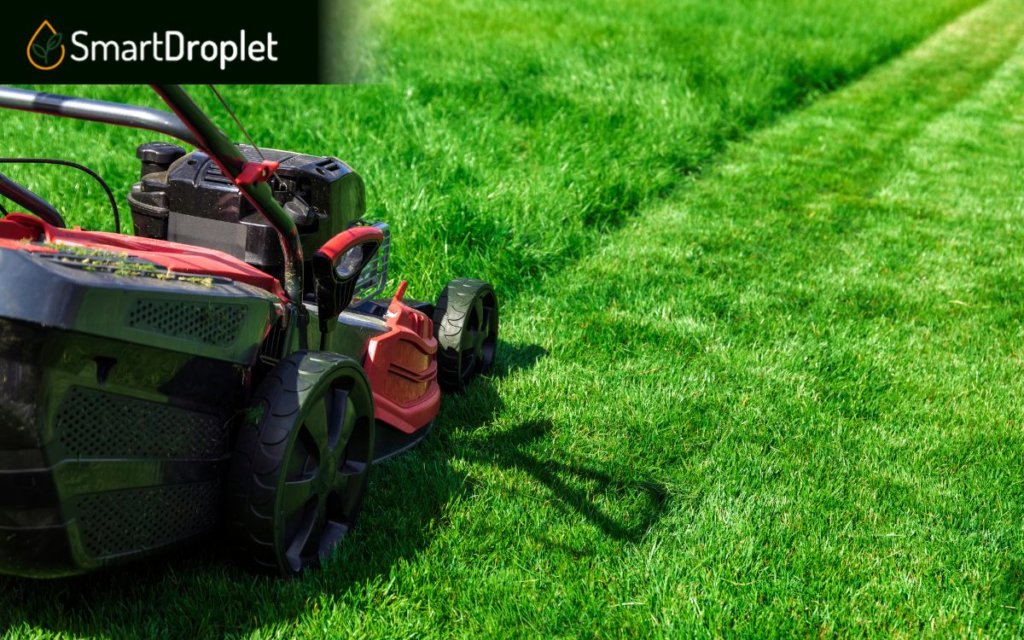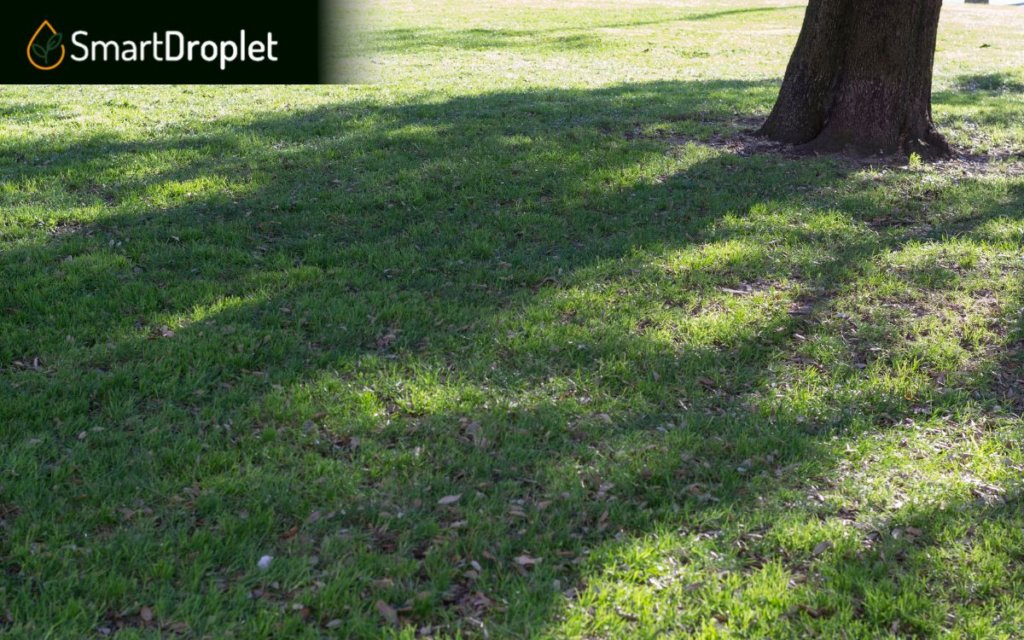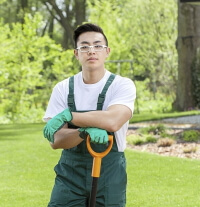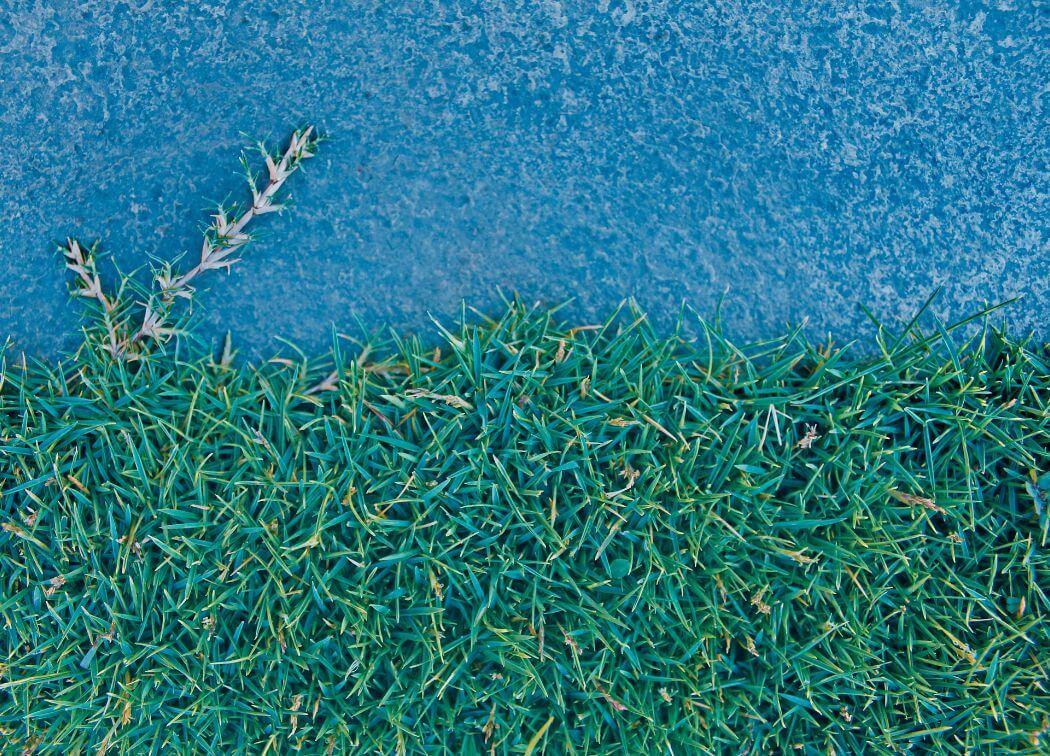Bermuda grass is an excellent, dense turf, perfect for lawns and golf courses. However, it is prone to thinning when healthy growth isn’t assured.
This usually happens when soil compaction restricts the flow of air, nutrients, and water flow. Having too much shade and not enough fertilizer can also prevent grass growth.
Aside from hard-packed soil, lawn insects and heavy weed infestation can also contribute to thin lawns. Fortunately, there are solutions for a healthier lawn.
Here Are the Top 6 Ways of Making Bermuda Grass Grow Thicker:
- Mow Your Bermuda Grass Lawn Closer to the Ground.
- Feed Your Lawn With 4-1-2 Fertilizer or 16-4-8 Fertilizer. Find the Right Ratio
- Apply Pre-emergent Weed Herbicide to Prevent Thinning
- Apply Post Emergent Weed Herbicides on Visible Grass Weed
- Aerate Your Lawn to Enhance Poor Soil Quality
- Treat Lawn Diseases to Encourage Bermuda Grass Lawn Health
Let’s go through some surefire ways of ensuring dense Bermuda grass turf and a thicker, fuller Bermuda grass lawn.
6 Ways to Make Bermuda Grass Thicker
A thicker, greener lawn entails treating your lawn with care and respect. Maintenance is everything. Caring for your lawn properly will give you thicker growth later in the growing season.
You will need to keep a close eye on the calendar since Bermuda seed grows in spring to early summer. This will allow you to cultivate thicker Bermuda lawns instead of thin Bermuda grass.
Let’s go through the best ways of making your Bermuda grass lawns grow thicker and fuller.

1) Mow Your Bermuda Grass Lawn Closer
Mowing is the cornerstone of lawn maintenance. When mowing Bermuda grass, your reel mowers will have lateral growth instead of vertical growth, making for thicker grass.
The best way to go from a thin lawn to a thick one is by mowing frequently and mowing lower than you’re used to. This means mowing lower than 1 inch. But, the best mowing height depends on your needs.
To ensure the best results, you will need a reliable lawnmower. It should be able to cut above the grass roots cleanly instead of hacking and cleaving.
The Scotts 2000-20 20 Inch Mower is an excellent reel mower that can get the job done effectively and smoothly.
Your Bermuda lawn grows thicker and faster the more frequently you mow. You must also always water your lawn after mowing and check and increase fertilizer levels.
These reminders aren’t just for your Bermuda lawn. Any lawn with grass blades can benefit from good mowing and follow-up treatments. Water and fertilizer make the green grass grow.
Bermuda grass is particularly responsive to proper care. It grows quickly and evenly, ideal for carpet-like fields like stadiums and golf courses.
These pinnacles and thick and healthy Bermuda grass grow because they’re mowed every day!
2) Feed Your Lawn With 4-1-2 Fertilizer or 16-4-8
After cutting your grass down, it’s time to get it growing back thicker and in a beautiful, lush green hue. Bermuda grass’ growing season is typically between spring and summer.
Please make the most of it. When the season comes around, it is best to make Bermuda grass thicker with the right amount of fertilizer. Enhancing productiveness and growth ensure bright green lawns.
We highly recommend doing a soil test to determine the low-level nutrients needed for your lawn afterward if you want to use the BEST fertilizer.
You can then apply an adequate amount of general-purpose NPK (Nitrogen, Phosphorus, Potassium) fertilizer. The ratios of 4:1:2 and 16:4:8 excel at their job and make Bermuda grass thicker and richer.
A highly recommended 16-4-8 fertilizer is The Andersons PGF Fertilizer.
- Phosphorus-free fertilizer blend with a fine particle size that includes humic acid, which helps increase turf quality and reduce nutrient requirements
- Contains MUtech coated slow-release nitrogen that provides both extended feeding and uniform growth
- DG particles are not reliant on a physical coating to release nutrients. Coated fertilizers are very susceptible to damage from mowers
Healthy plant life and even Bermuda grass grow when Nitrogen, Phosphorus and Potassium are present in a 4:1:2 parts ratio. Before applying your fertilizer, it is best to conduct a soil test.
The soil test is essential for determining fertilizer levels and soil pH levels. If your fertilizer levels or soil pH are low, that is the best time to apply fertilizer, whether you have sandy soil or clay soils.
When drought comes, lawns with Bermuda grass start to thin out. Ensure your lawn grows as dense as possible to avoid the thinning of your Bermuda grass.
Applying fertilizer increases growth by allowing you to kill weeds and diseases and fortifying your lawn against drought. This is how to make Bermuda grass thicker.
3) Apply Pre-emergent Weed Herbicide
Weeds are a major problem on every lawn. They can create discoloration, thinning and patchiness on even the toughest lawn. You will need to control weeds before they grow and spread.
Bermuda grass grows when it doesn’t need to compete with weeds. This is why preventing weeds like poa annua, crabgrass and quackgrass from rearing their ugly leaves is important.
The difference between a lush, green, full Bermuda grass lawn and a thin, patchy “lawn” is how well it can grow. Here are some of the important ways of preventing weeds from creeping in.
You must apply pre-emergent early in the spring. This prevents most weeds from germinating. You can apply pre-emergent weed killer every 60-90 days.
The best pre-emergent herbicides will stop grass weeds from growing in the summer months (June to August). This is important because lawn weed killers hurt your lawn in over 90-degree heat.
Quackgrass and crabgrass are the most aggressive assaulters on Bermuda Grass. They limit the growth of proper lawn grasses and can overwhelm your lawn. They can even make it impossible to overseed Bermuda Grass.
You will need to control your lawn to maintain a thick, luscious lawn.
4) Apply Post Emergent Herbicides on Visible Weeds
Crabgrass and other broad-leaf grassy weeds are detrimental to your lawn. Once they grow out of the ground, you will need to uproot them or kill them with a post-emergent herbicide.
When applying herbicide, it’s important to focus on affected areas and avoid neutral areas. This will kill the weeds without touching the Bermuda Grass, keeping it free and safe to grow.
It is a last resort solution for your lawn. It can get risky because of how powerful post-emergent is.
While crabgrass and other weeds can be dealt with chemically, quackgrass is difficult to control because of its underground spread. They will require more effort and planning to destroy.
- 2-In-1 formula: kills present lawn weeds and prevents listed weeds from emerging
- 6 Month protection: proprietary 2-in-1 formula kills and prevents weeds for up to 6 months
- Weedkiller: kills weeds including dandelion, dollar weed, and clover
5) Aerate Your Lawn
One of the most important steps how to make Bermuda grass thicker is to aerate your lawn. While it’s recommended to aerate in spring and summer, the best time to aerate is when the grass turns green.
You should also aerate just after mowing while the grass is still short. You should also start aerating as early as possible if you have clay soil and hard soil to promote water and nutrient penetration.
Poking these holes in your lawn allows nutrients to seep into your soil. It prevents fungal infections and diseases from eating at your plants because they receive proper sustenance.
Aerating solves a variety of problems for your lawn, and it can help ensure that your Bermuda Grass grows green and strong even before you apply all the chemicals and herbicides.
If you can ensure proper aeration, the soil can absorb nutrients, which produces a thicker Bermuda Grass lawn.
6) Treat Lawn Diseases
Diseases are another major factor in thinning Bermuda grass. Infections like fungi can determine how healthy your Bermuda Grass can get.
Brown patch disease, spring dead and dollar spots are the most common fungal diseases afflicting Bermuda grass. They can eat away at grass blades until the turf is thin and ugly.
Spring dead spots appear as circular patches spreading out over large affected areas. They show up in fall and spring and are brought about by large nitrogen traces on the lawn.
Root rot can also decay and corrupt your lawn thickness. It’s so bad that it’s called Bermuda decline. Not a good thing to have when you’re trying to make a thick Bermuda lawn.
When in doubt, it’s best to aerate your lawn to prevent dead roots from spreading diseases. Make sure to apply treatment when you spot diseases to save your lawn.
Aside from diseases, pests like Grubs and Japanese Beetles can also thin your lawn. Keep the insects away, and your grass can keep staying green.

How Shade Affects Grass Thickness
A stand-out factor for growing your green lawn is shade and how it affects your grass’s amount of sun. Bermuda grass’s warm-season grass. It grows thicker in direct sunlight.
Excessively shady areas prevent it from getting the sunlight it needs to survive. The lack of warmth will also prevent any Bermuda grass seed from sprouting.
With too much foliage cover and too many trees and buildings affecting your existing lawn, it’s almost guaranteed that your season growth will be a bust. You will get patchy Bermuda grass at best.
If you want thick lawns, always consider where you’re planting. It should deprive weed seeds and prevent weed growth. Your lawn should have good sun exposure and a bit of warmth available.
This will help make your Bermuda grass greener and thicker than you can hope for in a more shaded area.
Conclusion
The best ways of ensuring new grass growth and a thicker lawn are to aerate compacted soil, mow your grass adequately, apply weed killers, and treat diseases before they spread.
Always keep an eye on your lawn. Plan your maintenance according to your calendar and maximize the growing season. This will make our grass richer, lusher and greener.
Be proactive when caring for your lawn Bermuda grass, and you should have a thick Bermuda Grass lawn in no time.




